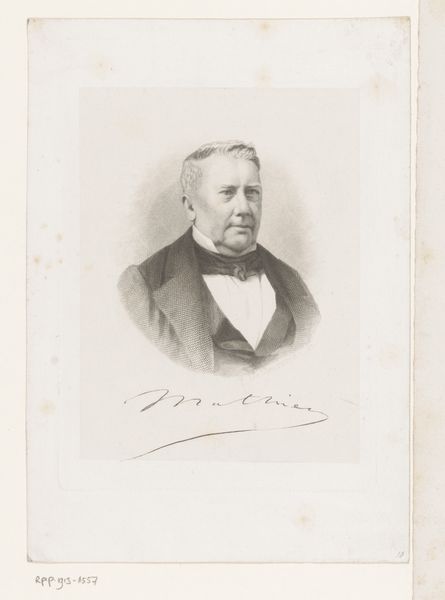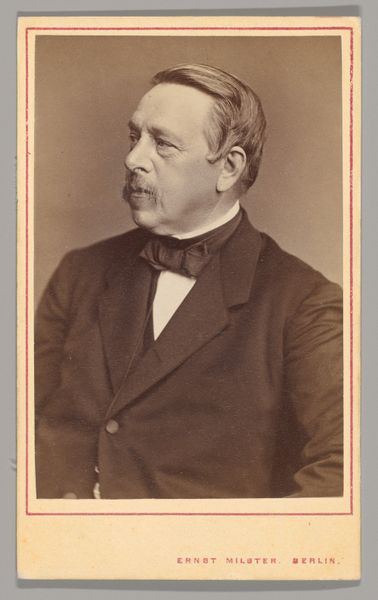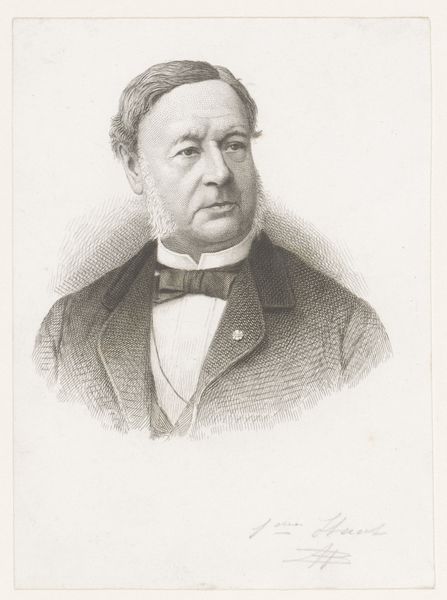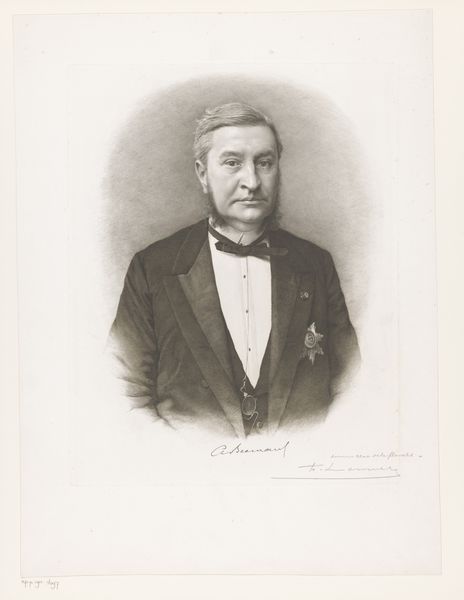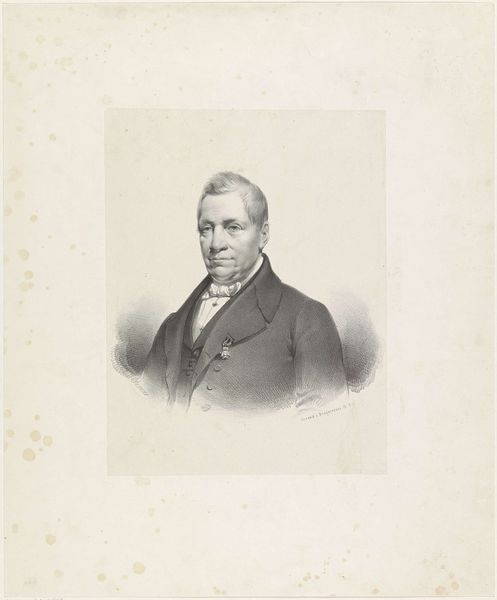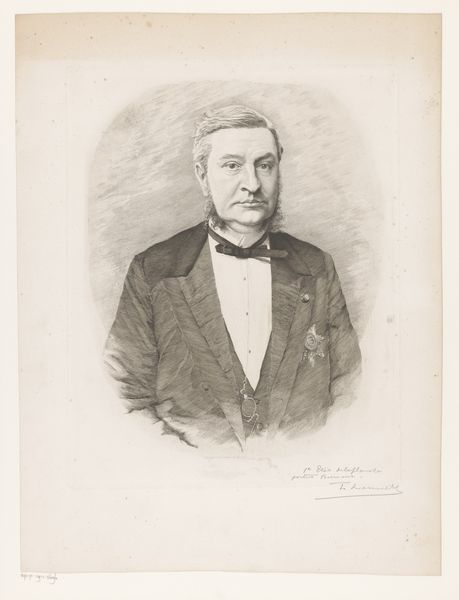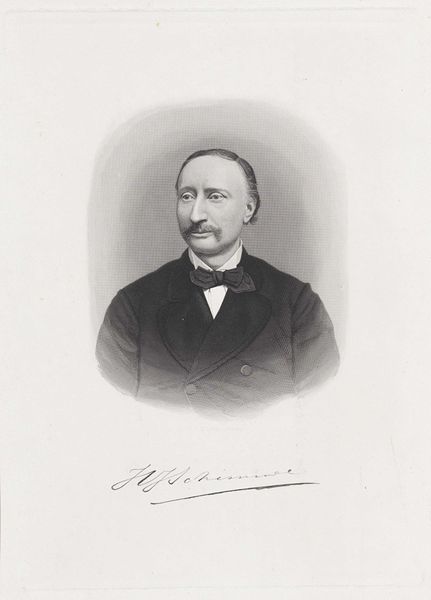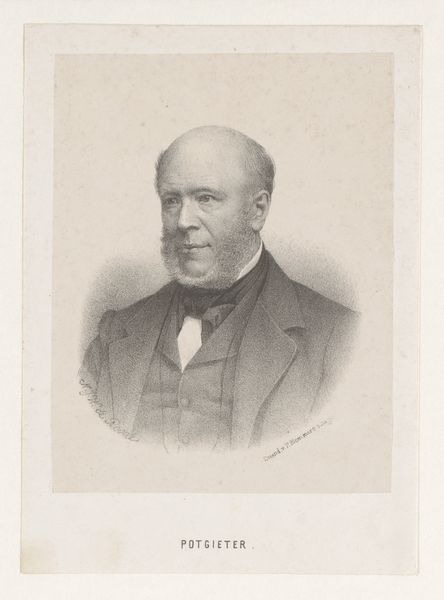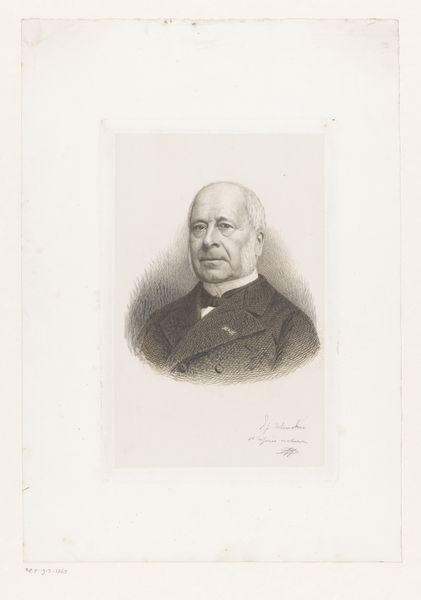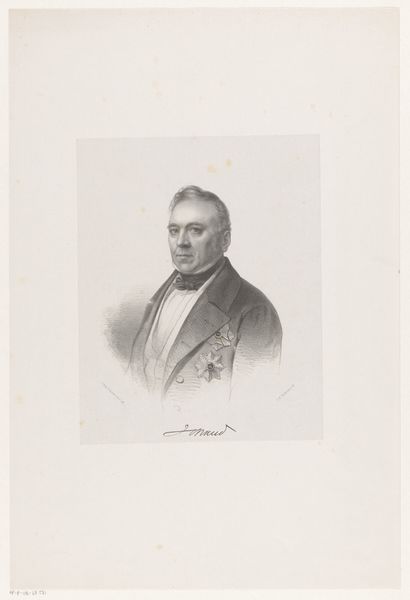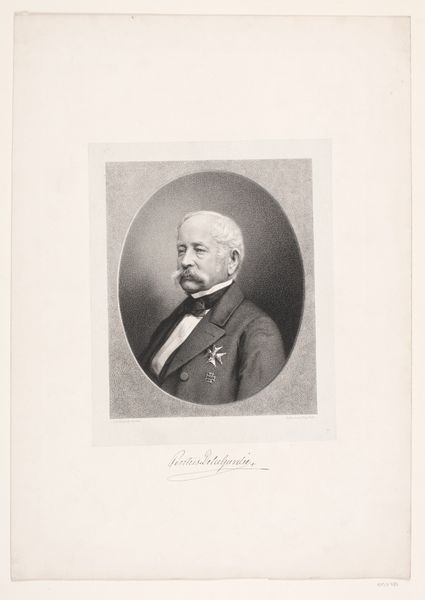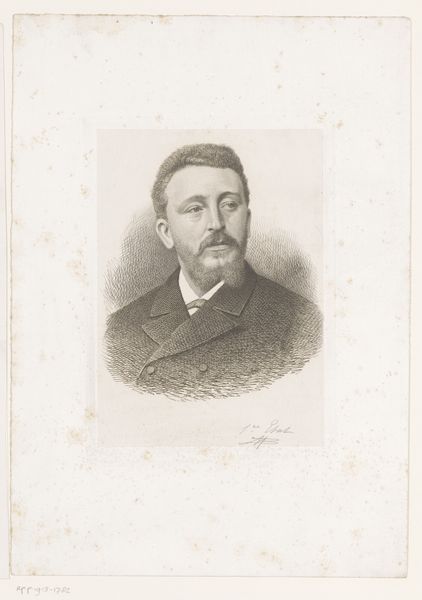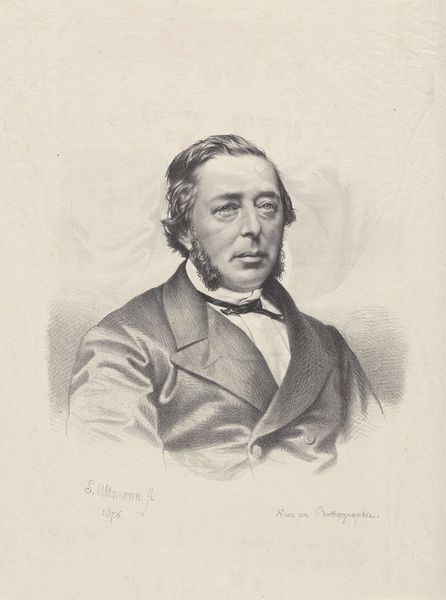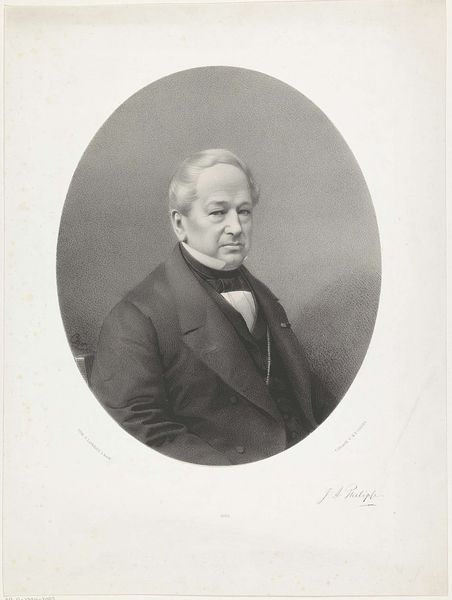
engraving
#
portrait
#
caricature
#
portrait reference
#
pencil drawing
#
portrait drawing
#
academic-art
#
engraving
#
realism
Dimensions: height 290 mm, width 220 mm
Copyright: Rijks Museum: Open Domain
Jean Baptiste Pierre Michiels made this print of Gustave van Havre sometime in the mid-19th century, likely using a technique like engraving or etching. It’s a rather conventional portrait of a well-to-do man, but portraits like this can tell us a great deal about the social and cultural values of the time. Consider the visual codes at play here. Van Havre is dressed in a dark suit, complete with a bow tie. The coat of arms at the bottom suggests a family of some standing. This is the visual language of the bourgeoisie, the middle class, who were gaining power and influence in 19th-century Europe. How did they want to be seen? What values did they want to project? This image provides some clues. To understand this image more fully, we might want to research the Van Havre family, their social position, and their values. We could consult genealogical records, social registers, and perhaps even family archives. Art is never made in a vacuum, and it’s through understanding its social context that we can truly understand its meaning.
Comments
No comments
Be the first to comment and join the conversation on the ultimate creative platform.
